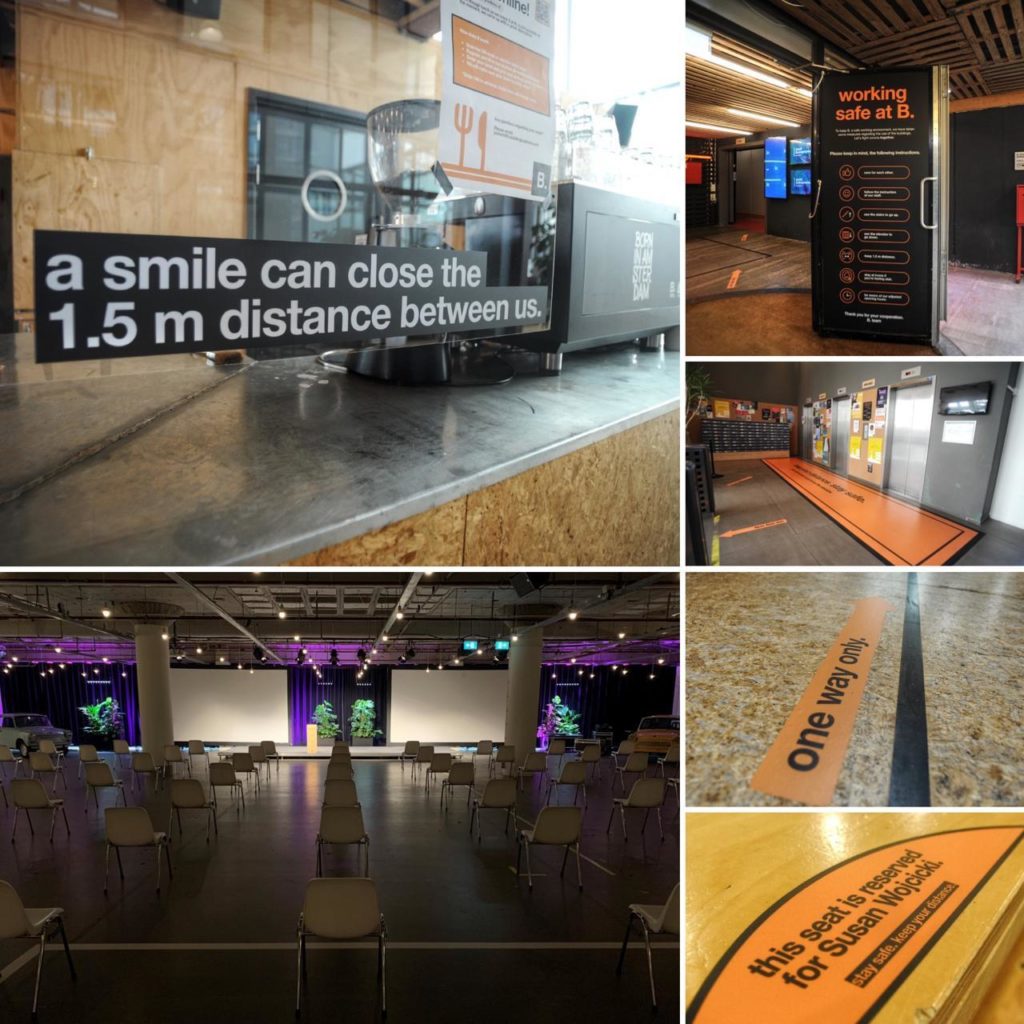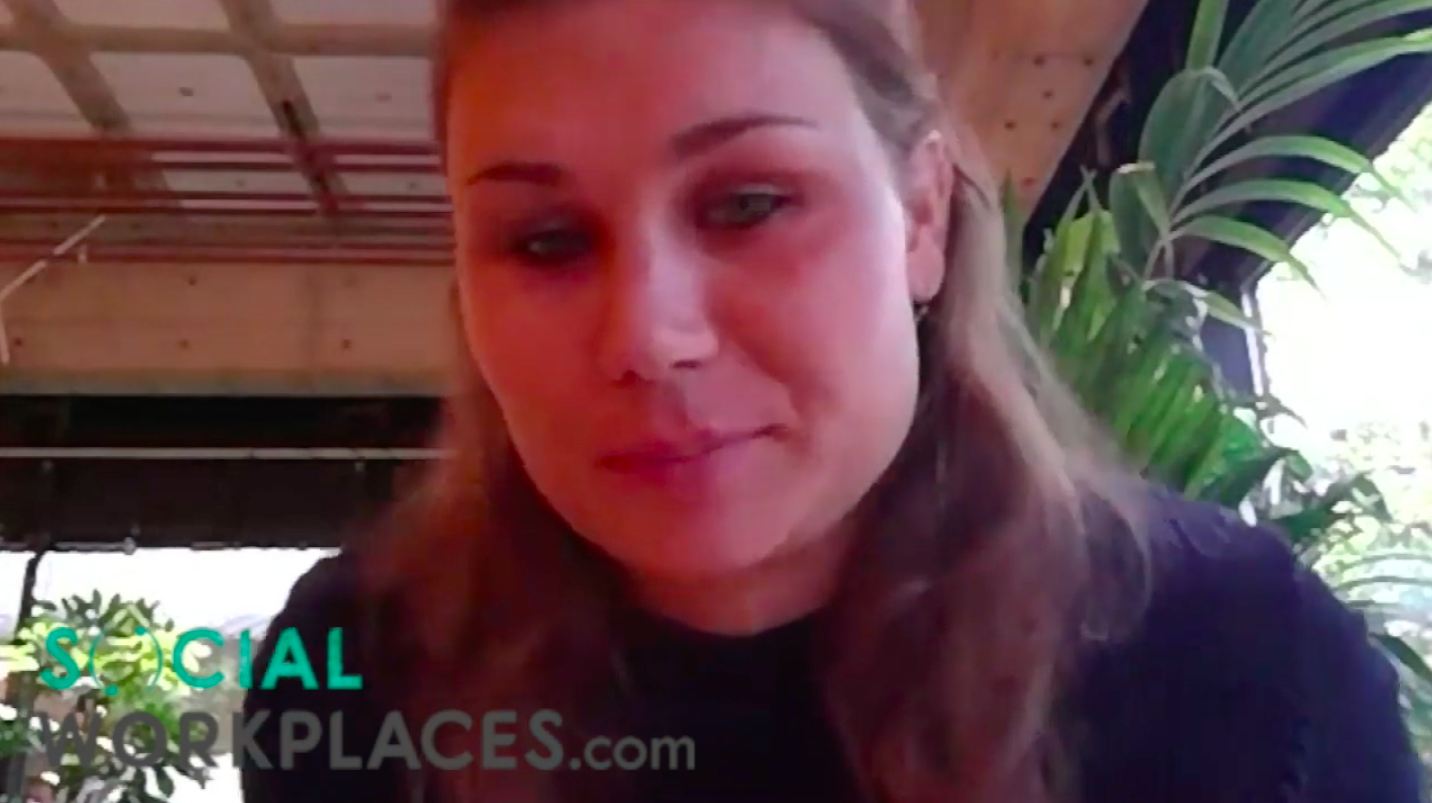Dieuwke van Buren is manager of B. Building Business, one of the largest coworking operators in the Netherlands. B. manages 42.000 sqm of space and hosts more than 400 companies. B. also hosted the Coworking Europe conference in Amsterdam back in 2018. We have interviewed Dieuwke to find out more about how they have managed the current COVID-19 situation and their take on how things will develop after the pandemic. [Check the main takeaways of the interview summarized below the video]
Main takeaways
Here are some of Dieuwke van Buren’s ideas she has shared with us during the conversation:
- The B. Building Business spaces never closed during the Covid-19 pandemic; Dutch authorities implemented “smart lockdown measures”, which allowed spaces to stay open. Most of the tenants didn’t show up much though, especially during the first weeks of the crisis.
- Now, in the second half of May, people are slowly coming back to the space. B. even signed up new subscriptions.
- The events hosting business, a big part of B.’s ecosystem activity and revenue generator, is still looking into an uncertain future. Events planned for September are still in the agenda, but B. doesn’t know if they will be able to host them.
- B. took measures to create a safe environment by lowering capacity in the building and making social distancing happen. People are checking in again and are in the first step towards considering hosting events.
 B’s coworking space put in place perennial streaming possibilities with top notch equipment. People are discovering these options and thinking about hybrid forms of events with a mix of online and offline presence. This way, instead of postponing events, organizers are thinking about developing the online part: “It will likely become a part of our future business model”, says Dieuwke, and adds: “People have to be used to it. You could have a smaller event on the spot and grow the audience online“.
B’s coworking space put in place perennial streaming possibilities with top notch equipment. People are discovering these options and thinking about hybrid forms of events with a mix of online and offline presence. This way, instead of postponing events, organizers are thinking about developing the online part: “It will likely become a part of our future business model”, says Dieuwke, and adds: “People have to be used to it. You could have a smaller event on the spot and grow the audience online“.- The coworking space is getting inspiration from Schiphol Amsterdam Airport, which is an expert in drawing lines and signing routes for people not to bump to each other while keeping them separated in a building.
- “The coworking space is way more safe than a supermarket, with big room between desks and routes can be designed”, says Dieuwke.
- “After the crisis, home working won’t be as popular and there will be a big thirst for workplace options close to home” Dieuwke believes.
- In Amsterdam, everything is reachable by bike which creates a specific dynamic as one doesn’t need to commute necessarily to another city. “We see a trend towards more local consumption for food and other stuff; we could see this trend extended to the working model where we consider to work closer to our homes”.
- We want more sustainable models and coworking is part of it:” At the end, we will likely move towards a combination of online and offline models”. In general, “We have to figure out what will be our business models for the future with those shifts”, adds Dieuwke.
Find below the podcast version of the interview to learn more about B. Building Business and Dieuwke’s thoughts on what’s to come.
Join the Coworking Europe conference for more insights, data and connections!




0 Comments